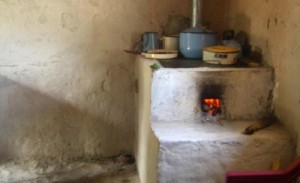The negative impacts of traditional cookstoves and solid fuels are well known and include exposure to harmful pollutants, deforestation, and climate change. In response, organizations around the world have developed inexpensive, fuel efficient, and clean-burning alternatives. Yet despite this innovation, one-third of the world’s population still uses traditional biomass stoves, leading researchers to wonder what is preventing these potentially life-saving stoves from being successfully implemented. In a recent article in Energy Policy, a team led by Yale Associate Professor of Forestry and Environmental Studies Robert Bailis attempted to shed light on the crucial role social networks play in the diffusion and adoption of technology.

The scientists focused their analysis on a local project launched by Proyecto Mirador, a Honduran NGO, whose goal is to replace old cookstoves with safer models. Unlike other projects, Proyecto Mirador has managed to install over 65,000 new cookstoves by relying almost solely on word-of-mouth advertising. To determine why this particular project was such a success, Bailis’s team tracked the spread of information regarding the project by tracing chains of referrals. By doing so, they revealed a number of significant trends. For example, government officials were key players in the diffusion of information, and people only shared information about the project with others once they had heard it at least twice. Furthermore, communication among community members was critical because people tended to trust the opinion of neighbors. On the other hand, interactions with strangers were crucial to bringing information to new communities.

Though many of these results are likely specific to the Honduran communities involved in the project, moving forward researchers may be able apply these methods to other regions. By using similar methods with other socially beneficial technologies, they may eventually unlock the full potential of technological innovations.
